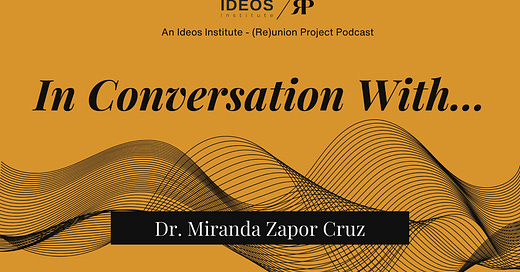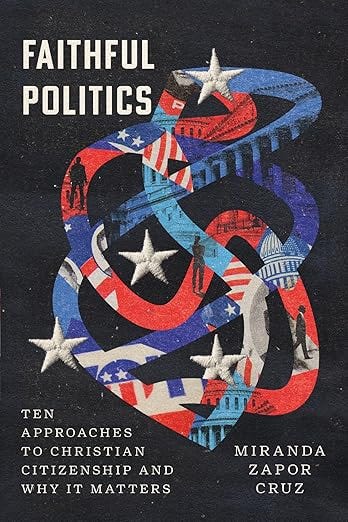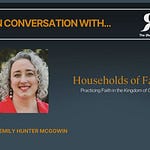(If you want to listen to the conversation outside of Substack, you can subscribe on Spotify, YouTube, or Apple Podcasts.)
As part of the launch of the 31 Days of Unity Campaign, we are talking with campaign contributors about their efforts to cultivate unity. In this episode, Ideos VP Greg Arthur engages Dr. Miranda Zapor Cruz, Theology Professor at Indiana Wesleyan University, in a deep conversation about the intersection of faith and politics, particularly in the context of American Christianity. They explore the challenges faced by Christians in a polarized political landscape, the importance of critical engagement, and the need for intentional community practices that foster healthy political discourse.
Dr. Cruz discusses her book, Faithful Politics, which offers a deeper look at theological frameworks for political engagement, including the rise of dominionism and Christian Nationalism. The conversation concludes with reflections on the hope for future generations navigating these complex issues.
Take 1 minute today and sign up for the 31 Days of Unity Campaign!
Find our more about Faithful Politics
Christians who seek to relate their faith to politics have always encountered tensions. Instead of easy answers and simple checklists, we need tools to help us thoughtfully navigate the complexities of Christian faithfulness in an increasingly diverse and polarized society.
In this book, Miranda Zapor Cruz guides readers in forming a vision of citizenship that brings Christian convictions into political engagement while avoiding common pitfalls. Cruz provides a measured, nonpartisan overview of different ways Christians have approached political participation. These ten views represent a range of theological approaches to the relationship between the kingdom of God and the country, including Anabaptist, social gospel, principled pluralist, and Christian nationalist. Cruz describes strengths and weaknesses of each view, with a focus on Christian faithfulness.
In the United States, Cruz argues, Christians who share very similar faith convictions can arrive at different political conclusions. There are, however, principles from Scripture and theology that should inform our thinking and remind us that our ultimate citizenship is in the kingdom of God. Faithful Politics helps us learn from Christians of the past as we discern how to be salt and light in our own time and place.














Share this post